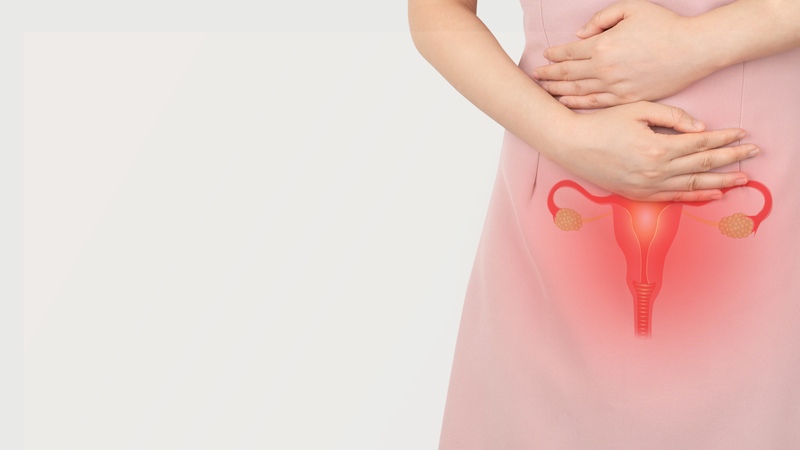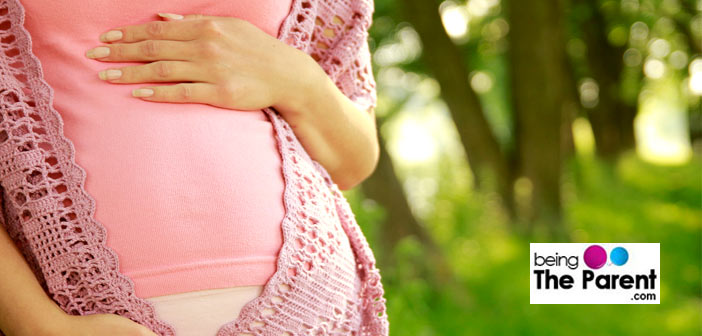
Sexually transmitted diseases or infections that are transmitted by sexual act with an affected person are referred to as STDs. An affected person can transfer STD to by having oral, anal or vaginal sex. It can either be bacterial or viral infection, and can also be transferred by using infected needles, razors or other household material and even by coming in contact with open wounds. STDs are serious problems and should be immediately treated irrespective of the fact whether you are expecting or not. STDs in pregnancy makes you and your baby susceptible to many lethal infections, and in some cases these infections can prove to be deadly.
What Are The Types Of STDs?
Though you will be tested for some STDs in your first pre-natal visit, it is important that you do tell your doctor if you have any sexual activity that you may suspect of being affected with STD. Also let your doctor know if you have had a history of any STD or have used any needles for a tattoo or maybe drugs. It is important to mention this to the doctor so as to avoid implications on the baby. Sexually transmitted diseases include:
- HIV/AIDS
- Syphilis
- Chlamydia
- Hepatitis B
- Trichomoniasis
- Herpes
- Gonorrhea
- Genital warts (caused by HPV or human papilloma virus)
What Are The Symptoms Of STD In Pregnancy?
Most often, no symptom of an STD can be seen unless tested. However, you may notice the below signs if you are infected:
- Bumps, soreness, redness, swelling in the anus, penis or vaginal area
- Skin rashes or severe itching in the penis or vagina
- Painful urination or pain during sex
- Discharge from the penis or vaginal discharge, bleeding from the vagina other than monthly periods
- Jaundice, aches, chills, night sweats or fever
Common STD Infections
- Human Immunodeficiency Virus or HIV/AIDS: This virus is responsible for causing AIDS or acquired immunodeficiency syndrome. The body’s defense mechanism is hampered by the HIV virus. HIV infection can be transmitted from mother to the developing fetus. A baby can get infected with HIV through pregnancy, labor or breastfeeding. If a woman knows about her being HIV positive, she can take help from her doctor and with the proper and timely treatment can protect herself and her child from the infection. Proper treatment can reduce the baby’s chances of getting HIV to less than 2%
- Syphilis: It is one of the commonly found STDs caused by Treponema pallidum bacteria. Syphilis is transmitted by sexually intercourse and from the pregnant mother to the newborn and can result in congenital syphilis. Premature birth, still births and in some cases death after a few hours of birth are the fatalities of syphilis. The surviving babies are likely to suffer from brain, heart, eyes, teeth, bones and skin problems
- Chlamydia: Chlamydia is a very common sexually transmitted infection caused by Chlamydia trachomatis bacteria. The infected pregnant women experiences profuse smelly vaginal discharge and may be accompanied by severe itching or burning sensation after urination. Babies born to mothers with chlamydia are likely to suffer from lung and eye infections. Preterm birth and low birth weight are also observed
- Hepatitis B: It is a liver infection caused by the hepatitis B virus (HBV). The transmission of the infection from the mother to the newborn can be avoided by proper and early screening. The child is immediately treated after birth
- Trichomoniasis: Trichomoniasis is a common sexually transmitted infection caused by Trichomonas vaginalis bacteria. The common symptoms of trichomoniasis are bleeding and foul, itchy discharge after sexual act. This infection can result in untimely rupture of membranes and even preterm birth
- Herpes: Another common STD, herpes is safe for the baby unless the baby has to be delivered. The genitals become highly contagious, and the abby can contract the infection when passing through the birth canal. In such a case, the baby is delivered through a C-section
- Gonorrhea: If contracted during pregnancy, the infection can cause miscarriage, preterm delivery, and the woman could also be experiencing painful urination. If the mother has an active infection at the time of delivery, the baby can develop blindness, or a serious blood infection
- HPV (Genital Warts): Small clusters may appear on the genitals, which may burn or itch. You will probably not treated for genital warts during pregnancy, and if the warts block the birth canal, a c-section will be performed to deliver the baby

How Can STDs Be Treated In Pregnancy?
The main factor determining your line of treatment is the extent to which the STDs have progressed. Oral administration or single shot of antibiotics are effective in curing syphilis and gonorrhea. Many antibiotics are safe during pregnancy, and your doctor will prescribe only them. The treatment of sexually transmitted infections in expectant mothers is listed as below:
- HIV/AIDS: Not curable, but some medications can prevent the transmission of the virus to your baby
- Syphilis: If you are affected with syphilis, your doctor will prescribe medicines to cut down the risk of infection transmission to the newborn baby
- Chlamydia: Antibiotics are given to cure Chlamydia infection in pregnant mothers. Medicines used to cure gonorrhea eye infection can also treat Chlamydia eye infection in babies
- Hepatitis B: Babies born to hepatitis B affected mothers are given antibiotic injections to protect the baby from the lethal infection
- Trichomoniasis: If pregnant women are affected with trichomoniasis, the doctor will prescribe medicines to treat the infection
- Herpes: Herpes is a viral infection and your doctor will prescribe you antiviral medications to cure the viral lesions during the last month of pregnancy so as to avert any outbreak. If expectant ladies have active lesions of herpes, C-section is done to avoid the transmission of infection to the little baby
- Gonorrhea: Specific antibiotics are administered to expectant women for the treatment of gonorrhea. Since the infection does not manifest itself, eye drops are given to all newborns to protect them from falling prey to gonorrhea eye infection
- HPV (Genital Warts): If a pregnant woman is affected by HPV or genital warts, the treatment can be given only after she delivers as the medicines used are harmful for the viability of the fetus
How Can I Prevent STDs?
Keeping in mind the age old adage, “Prevention is better than cure”, here are listed some simple tips to help you protect yourself from STDs:
- Avoid unprotected sex, use latex condom with water-based lubricants whenever you have sex
- Avoid having multiple sex partners
- Have sex with only one partner because this will minimize your chance of catching STDs
- Avoid having sex with someone whom you think has many other partners
- Get screened for STDs because this will help you identify the presence of infection and get treatment accordingly. Early detection and immediate treatment is always good
- Avoid taking alcohol before having sex. Because this not only adversely affects the health of your baby but also indulge you in having unprotected sex
- Increase you knowledge about the signs and symptoms of STDs. You can ask you caregiver to tell you about the sexually transmitted infections
Can Pregnant Women Get Infected By STD?
STDs can infect pregnant as well as non-pregnant woman. Pregnancy does not provide a woman any shield from STDs, Sometimes STDs are silent and do not manifest their symptoms therefore every pregnant women is screened during antenatal check-up as routine procedure. STD infection during pregnancy predisposes not only the mother to lethal risk but also the life of the newborn. Women with STDs during pregnancy are at a great risk of catching HIV infection. Timely screening and proper treatment can cure the condition. The risk can be cut down if the expectant woman is tested for STDs in early pregnancy and in the third trimester.
Expectant mothers are screened for STDs in their first antenatal visit and if diagnosed are treated accordingly. Immediate and proper treatment is the only way to cure the mother and the baby. Sexual partners should also be checked and treated accordingly.

